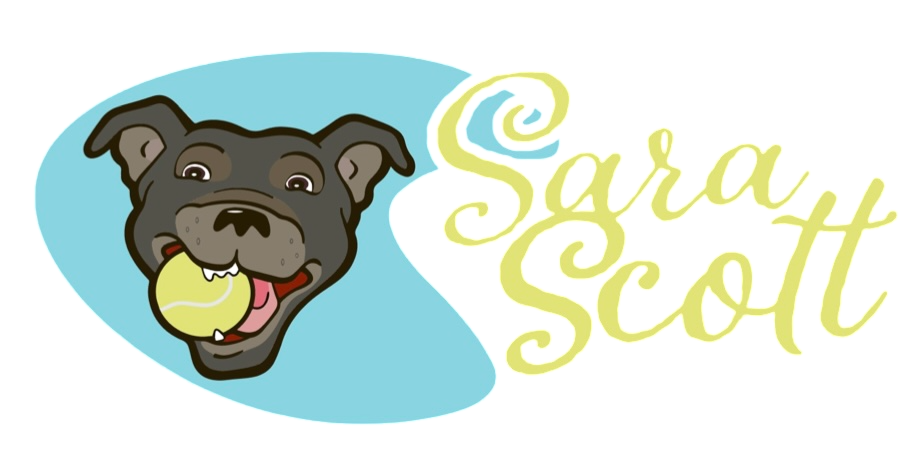Understanding the Diverse Roots of Reactive Behavior in Dogs
- Sara Scott

- Oct 26, 2023
- 3 min read
Updated: Jul 25, 2024
Reactive behavior in our dogs stems from a complex interplay of factors, ranging from genetics and early life experiences to health and environmental stressors. By exploring the various potential causes, we gain critical insight into addressing reactivity at its roots with wisdom and empathy.

Genetics & Inherited Tendencies
Genetics can play a significant role in reactivity. Some breeds are genetically predisposed to anxious, fearful, or aggressive tendencies based on their history and selective breeding traits.
For example, herding breeds tend to be more high-strung and reactive due to their breeding to intensely focus on movement and be hyper-alert. Sighthounds can be prone to chasing reactivity triggered by rapid motion. Guarding breeds may react protectively to perceived threats.
It’s vital we don’t stereotype breeds, as individuals vary greatly. But understanding genetic influences allows us to implement targeted training tailored to the dog’s inherited traits.
Beyond specific breeds, an individual dog’s parental lines also shape temperament. Pups may inherit fearful, anxious, or aggression-prone tendencies from their parents that influence reactivity.
Additionally, a dog’s sensitivity to stimuli is partly genetic—some dogs are just wired to be more reactive to sounds, sights, or touch. These innate traits contribute to how they respond to triggers.

Early Life Experiences
A dog’s early experiences can also set the stage for future reactivity. Stress in the womb from a mother dog’s anxiety or trauma can impact puppy brain development. Negative experiences in the litter from poor maternal care or under-socialization also play a role.
Additionally, the critical socialization period from 3-16 weeks old has lifelong impacts. Pups who missed key socialization during this phase often struggle later in unfamiliar situations. Insufficient positive exposures to people, dogs, environments, handling, and stimuli can manifest as adult reactivity.
Single traumatic incidents during puppyhood, like aggression from another dog, can also lead to fear and defensive responses that generalize to similar scenarios. Early traumatic experiences shape future reactivity.
Learned Behaviors
Reactivity can also stem from learned habitual responses. Dogs repeat behaviors that successfully get them what they want. For example, many dogs learn that barking or lunging makes other dogs go away. So they default to these reactions even when the threat is mild.
Tools like prong collars and electronic stimulation collars rely on creating discomfort. Dogs learn to associate this pain or fear with the stimuli present when shocks are delivered, leading to increased reactivity and aggression around those triggers.
Health Triggers
Medical issues like orthopedic problems, neurological conditions, vision or hearing loss, dental disease, and gastrointestinal distress can cause or exacerbate reactivity. When dogs don’t feel well due to physical or mental illness, their tolerance and coping abilities are reduced.
Reactivity triggered by a health problem often resolves once the medical issue is treated. Finding and addressing sources of physical discomfort or pain is imperative.
Adolescence
As puppies transition to adulthood around 6-18 months old, their confidence, hormones, curiosity, energy levels, and body strength fluctuate rapidly. They explore newfound abilities to bark, lunge, and guard. This developmental phase often involves temporary reactivity challenges that improve with maturity. Providing extra support during adolescent growing pains is essential.
Environmental Stressors
Aspects of a dog’s environment often contribute to reactivity. Being leashed adds frustration, decreasing control. Reacting at fences stems from barrier stress. Constant loud noise overstimulates nervous systems. Reactive dogs need increased structure, predictability and decompression outlets to thrive within their environment.
Preventing Reactivity
While genetics and early experience play a big role in shaping behavior, proper socialization, conditioning, structure, and early intervention can prevent many dogs from developing significant reactivity. Knowing the risks empowers us to set dogs up for success through thoughtful prevention and early modification before unwanted habits entrench.
The Takeaway
There’s no one-size-fits-all cause of reactivity. And often multiple factors are at play. The key is understanding a dog’s unique risk profile based on breed, upbringing, environment, health, and developmental stage. This allows us to implement tailored modification and management strategies to address the roots of reactivity and help our dogs lead their best lives.
Is your dog struggling with perplexing reactivity issues? As a certified dog trainer and behavior consultant, I create customized training plans that address the ROOT causes of reactivity using proven, dog-friendly methods.
Whether it stems from genetics, lack of socialization, adolescence, health problems, or other factors, I'll conduct a thorough assessment and design a science-based modification program tailored to your dog’s unique needs. My approach always prioritizes your dog's emotional wellbeing.
To learn more about my personalized reactivity training services, click here. Let's schedule a consultation to start unraveling the intricacies of your dog's behavior and mapping out a peaceful path forward together. With compassion and positive reinforcement, reactivity can be transformed.
I look forward to collaborating with you and your wonderful dog soon. Please reach out if you have any questions.




Thank you for the thoughtful analysis of reactivity's diverse causes. Your perspective gave me greater wisdom to support my own reactive dog. More enlightening posts please!